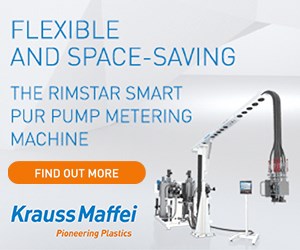USQ holds composite rebar workshop
Internationally-renowned expert provides Australian civil and composite engineers with workshop on the use of fiber-reinforced polymer (FRP) composite materials in infrastructure.
The University of Southern Queensland (USQ, Darling Heights, Australia) recently partnered with Composites Australia to provide Australian civil and composite engineers with a workshop on the use of fiber-reinforced polymer (FRP) composite materials to address the problem of the corrosion of concrete infrastructure.
Civil and structural engineers from some of Australia’s major engineering consultant and construction companies including SMEC (Melbourne, Australia), AECOM (Brisbane, Australia), Wagners (Toowoomba, Australia) and EIC Activities (North Sydney, Australia), were among the 40 delegates representing more than 20 organizations and five states who attended the workshop in Brisbane.
The use of FRP bars has gained considerable worldwide interest and growing acceptance in the construction industry, as internal reinforcement to concrete structures, particularly in highly aggressive environments where corrosion of traditional steel reinforcing bar is a major problem. The workshop covered recent developments and field applications; specifications and design codes; design considerations and principles supplemented with many practical examples and fundamental theories of concrete member behavior.
Internationally-renowned leader on the use of fiber-reinforced polymer (FRP) composite materials in construction, USQ Adjunct Professor Brahim Benmokrane from the University of Sherbrooke (Sherbrooke, Canada), who delivered the workshop, explained corrosion resistance was the main motive and attraction for the choice of FRP over steel bars in public infrastructure such as roads, bridges and parking garages in Canada, where tonnes of salt are spread throughout city streets each winter. He also addressed concerns about the durability of FRP bars – including moisture uptake, elevated temperature, stress corrosion, creep, fatigue, fire ratings, adhesive bonding and UV resistance – by sharing the results of accelerated aging tests.
Since 2012, there were more than 1.5 million meters of GFRP bars installed in actual construction projects in Australia and the market for GFRP bars increases by 13% per year, and with an estimated market value of around AU$2.5 million in 2017.
Related Content
-
Composites enable epic interior for Museum of the Future
For this one-of-a-kind lobby, AFI pioneered digital, reconfigurable molds to achieve organic-shaped, multifunctional panels and stairwell cladding.
-
The state of recycled carbon fiber
As the need for carbon fiber rises, can recycling fill the gap?
-
Composite rebar for future infrastructure
GFRP eliminates risk of corrosion and increases durability fourfold for reinforced concrete that meets future demands as traffic, urbanization and extreme weather increase.

.png;width=70;height=70;mode=crop)













.jpg;maxWidth=300;quality=90)
